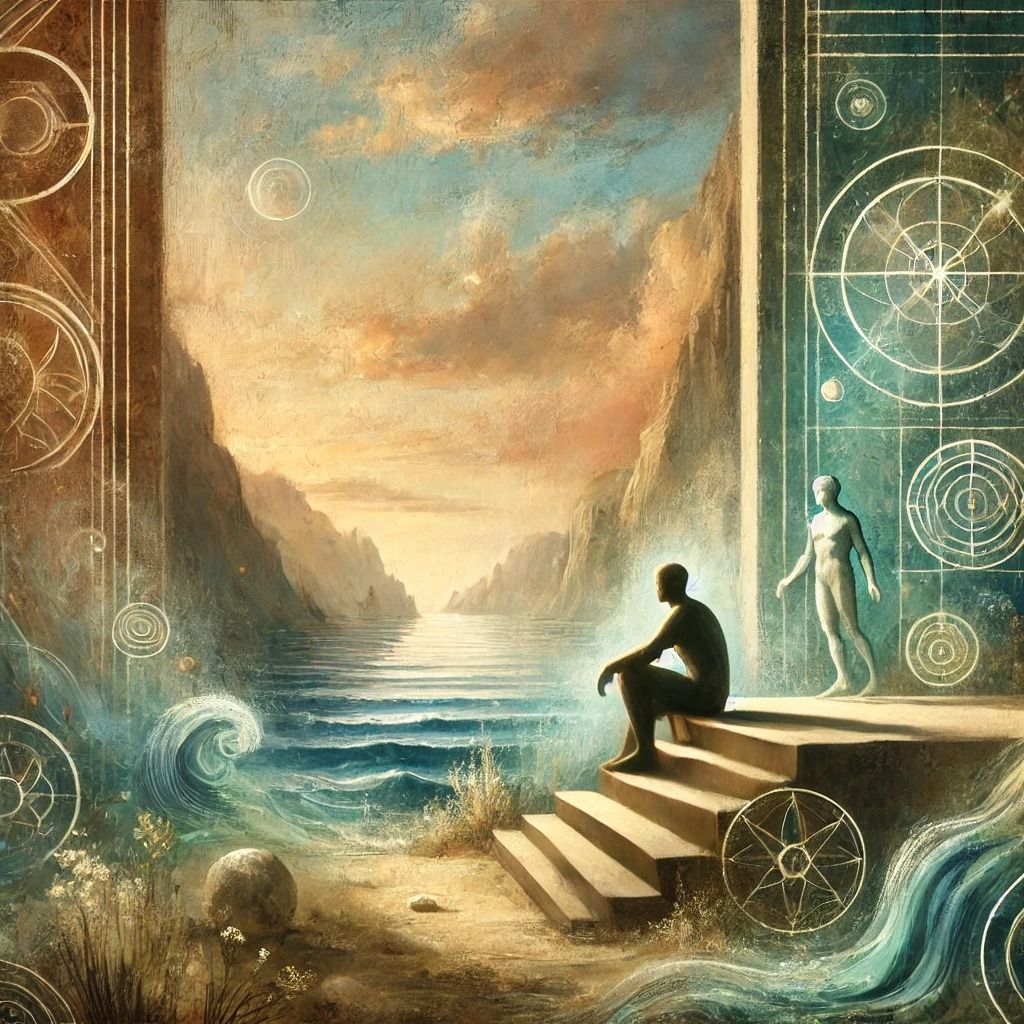Dennis Patrick Slattery
From the Wounds of War to the Wonder of Words in Homer’s Odyssey

“Tell me Muse, about the man of many turns, who many/Ways wandered when he had Sacked Troy’s holy citadel. He saw the cities of many men and he knew their thought.”
Odyssey, Book I.
No one escapes journeying in their lives. In fact, we are all journeying from something or to something. It is a universal human condition to journey, even when our goal is uncertain or obscure. Classics of literature from all traditions put our imaginations in touch with the large themes of being human. Through reading and contemplating them, we come to greater and deeper understandings of who we are and what our lives signify. All of this takes place through the power of analogy.
So for example, in this course we will explore many terrains of the psyche: the pain of being homeless, of woundedness and the scars they leave as residues from the trauma of war and its aftermath; the virtue of hospitality; the rich conjunction of masculine and feminine energies; the ubiquitous place of weaving fabrics into a new form as well as weaving our remembered stories through words that can penetrate and persuade our audience of its fictional truth.
Our 9-month course will use my book, From War to Wonder: Recovering Your Personal Myth Through Homer’s Odyssey. It consists of 365 entries. On each page are 8-12 lines from Homer’s poem, followed by a summary of what the lines convey in context; then a paragraph on the relevance of this passage for our lives today. At the bottom of each page is a writing meditation that participants can consider, bringing their own personal myth into the equation of learning.
Of course, participants are encouraged to read Homer’s epic in its entirety. That is an optional exploration. The important aspect of the course is to bring individuals into a community of curiosity, to see ourselves mirrored not only in Homer’s characters, including gods, goddesses and mortals, but also to hear our own stories in participants’ responses to the readings.
Knowing that others have suffered the pains and losses that life often intrudes into our lives expands us in tolerating, even embracing, suffering when we grasp that we are not alone in our pain. For storytelling is also a spiritual journey of the soul. Its intention is to reintegrate foreign parts of ourselves we have lost sight of or buried deep in the cellar of the psyche. Yet these same shards need to find a dwelling in our often-entangled plots. They are orphans seeking homecoming.
All of us carry a yearning to be heard, seen, and acknowledged. Our identity is reinforced through being witnessed by others; our stories are themselves witnesses to a life lived but not yet grasped fully until we translate these events into narratives, from which meaning then rises.
Classics like Homer’s Odyssey provide an occasion for contemplation, community-building through understanding our own mythic narratives, and to find both spaciousness in the telling and renewal in being heard respectfully by others.
In the realm of the mythopoetic imagination the time and space differences between Homer’s ancient Greek world and ours is of little consequence when we meditate on the large psychic patterns that give our lives a sense of coherence and purpose. I hope you will join us in this exciting adventure back into the ancient Greek world and into our own psychic, emotional and embodied lives.
Join Dennis Patrick Slattery in his course Homer’s Odyssey here on Jung Platform. He will guide you in exploring the concept of personal myth, by drawing parallels between the journey of Odysseus and your own life journey. To learn more and sign up click HERE.
Share
Other blog posts

Jung Platform is an online education space that offers a range of depth psychological and spiritual perspectives. Our courses and talks explore the journey of life with guidance from highly regarded teachers.
We are passionate about offering practical, life-enhancing tools and opportunities to connect with others on this path. Our aim is to help people connect to their own soul, so they can live more fully and colorfully.
Stay inspired.Get our magical updates.
Thank you for signing up!
FEATURED LINKS
-
Headquarters in Salt Lake City, Utah
-
info@jungplatform.com
-
Copyright © 2026
